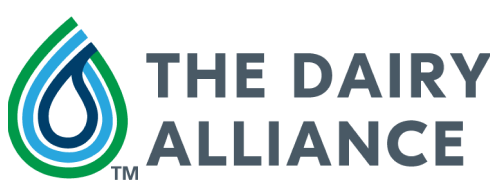Black American Health Series: Dairy’s Role During Pregnancy, Fetal Development, and Lactation
The National Medical Association and its partners recently published “The role of dairy food intake for improving health among black Americans across the life continuum: A summary of the evidence.” This summary highlights how lifespan nutrition for Black Americans has significant ties to health disparities and health equity. Over the next several months I will cover the role dairy plays throughout the lifespan and how it helps to address health disparities for Black Americans beginning with pregnancy, fetal development, and lactation. Adequate nutrition is particularly important during this time as this is a lifespan stage where rapid development is taking place, setting the stage for future health implications.
What Nutrients are Important During Pregnancy, Fetal Development, and Lactation?
Typically, during these stages, an increase in energy is needed which means more calories need to be consumed. Depending on the health status and stage of pregnancy, there is normally an increase of 300-500 additional calories needed each day. Nutrients that are also needed in higher amounts to support both maternal health and fetal development include:
Vitamin B12
Vitamin D
Choline
Iodine
How Can Dairy Help?
Milk and dairy foods provide 13 essential nutrients including iodine, vitamin D, and B12 that support maternal and child health in a convenient and economical way. Consuming the Dietary Guidelines for Americans recommended 3 servings of dairy a day is an easy way to help pregnant women meet these specific nutrient needs. The carbohydrates, protein, and electrolytes naturally found in dairy also helps expectant moms stay hydrated and ensure their energy needs are being met.
Dairy Consumption Concerns
Black mothers experience some of the highest health disparity and mortality rates with links to inadequate nutritional intake. They are at a higher risk for health complications that occur around birth as well. These health complications can include preterm birth, spontaneous abortion or miscarriage, abnormal fetal growth, and preeclampsia. Pregnant and lactating women in this affected group have been found to consume less than 2 servings of dairy each day with non-dairy milk alternatives serving as a substitute at an increased rate. The decrease in nutrients from dairy to non-dairy alternatives can contribute to health risks as the essential nutrients are not consumed in the recommended amounts.
Nutrients Matter to Reduce Health Risks for Moms
The nutrients found in dairy can play an important role in reducing health risks during pregnancy and lactation. Vitamins B6, B12, and D, calcium, selenium, magnesium, and zinc may help decrease the risk of pregnancy-related complications if consumed on a regular basis. Increased dairy consumption has been associated with lower blood pressure during pregnancy, which is important for decreasing the risk of preeclampsia.
Consuming milk and dairy foods is an easy and affordable way to help improve nutrition status and reduce health disparities for black moms and their children. Click here to learn more about the important role dairy foods play across the lifespan.
Lynette Armstrong





